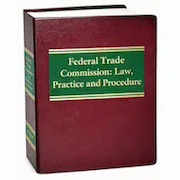Ad Law Insights - Legal and Regulatory Updates
FTC + state attorneys general digital marketing compliance, investigation + enforcement advocacy by FTC lawyer to Internet business community
This website is brought to you by Hinch Newman LLP and FTCDefenseLawyer.com.



On August 14, 2024, the Federal Trade Commission announced a Final Rule combatting bogus consumer reviews and testimonials by prohibiting their sale or purchase. The Rule allows the FTC to strengthen enforcement, seek civil penalties against violators and deter AI-generated fake reviews.
“Fake reviews not only waste people’s time and money, but also pollute the marketplace and divert business away from honest competitors,” said FTC attorney Chair Lina M. Khan. “By strengthening the FTC’s toolkit to fight deceptive advertising, the final rule will protect Americans from getting cheated, put businesses that unlawfully game the system on notice, and promote markets that are fair, honest, and competitive.”
The Rule announced on August 14, 2024 follows an advance notice of proposed rulemaking and a notice of proposed rulemaking announced in November 2022 and June 2023, respectively. The FTC also held an informal hearing on the proposed rule in February 2024. In response to public comments, the Commission made numerous clarifications and adjustments to its previous proposal.
What Does the FTC Final on the Use of Consumer Reviews and Testimonials Prohibit?
The FTC Final Rule on the Use of Consumer Reviews and Testimonials prohibits:
Writing, selling, or buying fake or false consumer reviews.
The Rule prohibits businesses from writing or selling consumer reviews that misrepresent they are by someone who does not exist or who did not have actual experience with the business or its products or services,
The Federal Trade Commission and the U.S. Department of Justice possess both overlapping and distinct authority to challenge anti-competitive practices under federal law. The FTC enforces, without limitation, the FTC Act and the Clayton Act. The DoJ enforces, without limitation, the Sherman Act and the Clayton Act. The FTC also may refer evidence of criminal antitrust violations to the DoJ. Only the DoJ can obtain criminal sanctions.
The FTC primarily focuses on policing deceptive or unfair business practices, and from unfair methods of competition. The DoJ enforces a much wider range of legal regulations on behalf of the federal government. Sometimes, the federal agencies cooperate on antitrust issues. There is a clearance process to determine which federal agency will investigate and enforce a particular matter.
FTC and Department of Justice Announce Public Strike Force on Unfair and Illegal Pricing Meeting
On July 26, 2024, the Federal Trade Commission and U.S. Justice Department announced the first public meeting of the Strike Force on Unfair and Illegal Pricing on Thursday, August 1, 2024, to discuss Strike Force enforcement actions taken to lower prices for Americans.
The meeting will include an open-press session with remarks by FTC attorney and Chair Lina M. Khan, Associate Attorney General Benjamin C. Mizer, Assistant Attorney General for the Antitrust Division Jonathan S. Kanter, and Principal Deputy Assistant Attorney General for the Civil Division Brian M. Boynton. Senior officials from other agencies will then offer remarks as well.
When it comes to false “Made in USA” claims, the FTC continues to ramp-up investigations and enforcement.
The FTC states taht misrepresentations about a product’s origin is injurious to consumers, honest businesses and American workers. That is why FTC attoreys continue to investigate and sue manufacturers and markerters that fail to adhere to applicable legal regulations, such as the Made in USA Labeling Rule, assessing civil monetary penalties where appropriate and returning money to consumers.
The FTC provides guidance and case documents at www.ftc.gov/musa.
In JUly 2024, FTC lawyers released a refreshed version of the agency’s Complying with the Made in USA Standard guidance document. It contains updated information about how teh FTC believes that consumers understand Made in USA claims, how the Federal Trade Commission evaluates advertisements, and how the laws and rules teh agency enforces interact with those enforced by other agencies.
Here are some key takeaways:
- Consumer expectations control. The FTC’s job is to make sure marketers’ claims match consumer expectations. According to the FTC, when consumers see Made in USA claims they expect advertised products to be “all, or virtually all,” made in the United States. All the way back to raw materials. If that is not true, or there exists uncertainty, manufacturers and marketers should make a different claim that is capable of being lawfully substantiated. Caveat. Just because parts are purcahsed from U.S. suppliers does not necessarily mean those parts are made in the USA.
On July 23, 2024, the Federal Trade Commission announced the issuance of orders to eight companies offering surveillance pricing products and services that incorporate data about consumers’ characteristics and behavior. The orders were sent to: Mastercard, Revionics, Bloomreach, JPMorgan Chase, Task Software, PROS, Accenture, and McKinsey & Co.
The orders seek information about the potential impact these practices have on privacy, competition and consumer protection.
The orders are aimed at helping the FTC better understand the opaque market for products by third-party intermediaries that claim to use advanced algorithms, artificial intelligence and other technologies, along with personal information about consumers—such as their location, demographics, credit history, and browsing or shopping history—to categorize individuals and set a targeted price for a product or service.
The study is aimed at helping the FTC better understand how surveillance pricing is affecting consumers, especially when the pricing is based on surveillance of an individual’s personal characteristics and behavior.
“Firms that harvest Americans’ personal data can put people’s privacy at risk. Now firms could be exploiting this vast trove of personal information to charge people higher prices,” said FTC lawyer and Chair Lina M. Khan. “ Americans deserve to know whether businesses are using detailed consumer data to deploy surveillance pricing, and the FTC’s inquiry will shed light on this shadowy ecosystem of pricing middlemen.”
The FTC is using its 6(b) authority, which authorizes the Commission to conduct wide-ranging studies that do not have a specific law enforcement purpose,
The FTC recently announced various examples of how the agency works to ensure that small businesses and consumer are not the victims of unfair or deceptive practices and unfair methods of competition.
Here are some recent examples.
“Made in the USA” Must Mean Made in the USA
Many small businesses make an effort to keep manufacturing jobs in their communities. If they meet the standards established in the FTC’s Made in USA Labeling Rule and Statement on U.S. Origin Claims, they may be able to lawfully label or advertise their products as “Made in the USA.” However, the FTC’s long record of law enforcement establishes that many manufactureres and marketers seek to undermine those efforts by falsely including an unqualified U.S. origin statement on products even though significant parts, processing and labor are not U.S.-based. Consult with an experienced Made in USA attorney to discuss agency guidance and enforcement of domestic origin claims.
Right-to-Repair Legislation
After addressing “misconceptions” about product repair in its Nixing the Fix report and bringing law enforcement actions to challenge illegal terms in product warranties, the FTC continues to work toward ensuring that dealers compete fairly with independent third-party repair businesses. One example is our work in support of state right-to-repair laws. For example, the FTC recently testified before the Colorado General Assembly’s Committee on Business Affairs and Labor in support of proposed legislation to expand the state’s right-to-repair statute to include digital electronics.
Topics
Archives
About This Blog and Hinch Newman’s Advertising + Marketing Practice
Hinch Newman LLP’s advertising and marketing practice includes two decades successfully resolving some of the highest-profile Federal Trade Commission (FTC) and state attorneys general digital advertising and telemarketing investigations and enforcement actions. As FTC attorneys, the firm possesses superior compliance knowledge and deep legal advocacy experience in the areas of advertising, marketing, lead generation, promotions, e-commerce, privacy and intellectual property law. It has also been selected to author the Consumer Protection Section of the prestigious American Lawyer Media International Federal Trade Commission: Law, Practice and Procedure Treatise, a comprehensive resource for developments of concern to advertisers, marketers and legal professionals that practice before the Commission. Through these advertising and marketing law updates, Hinch Newman LLP provides commentary, news and analysis on issues and trends concerning developments of interest to digital marketers, including FTC and state attorneys general advertising compliance, civil investigative demands (CIDs), and administrative/ judicial process.
